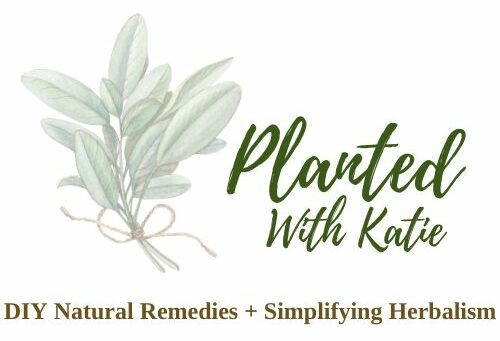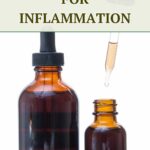Simple DIY Herbal Tincture Recipe For Inflammation
Managing inflammation can be tough, but a simple tincture recipe for inflammation offers a natural way to reduce pain and support healing. Using herbs like turmeric and ginger, this easy DIY remedy helps soothe sore muscles and calm inflammation.
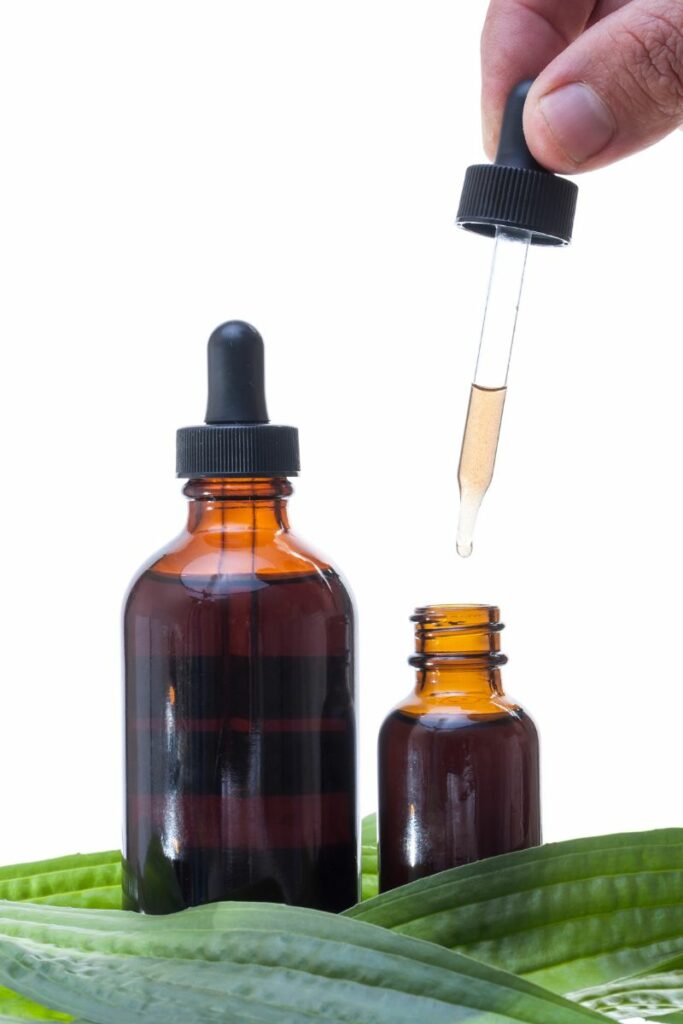
Disclaimer: This is not medical advice. Information and statements shown here are for educational and informational purposes only and are not to replace the advice of your healthcare professional.
This post may include affiliate links. Please refer to our disclaimer for full disclosure.
A tincture is a concentrated liquid form of medicinal herbs, made by soaking plant parts in a liquid like alcohol or apple cider vinegar. Tinctures extract the active compounds from herbs, making them easy to take in small doses. When it comes to inflammation, tinctures can be very helpful because they target the body's immune response, which can lower inflammation and reduce pain.
DIY tinctures are a simple and effective way to address inflammation naturally. You get to control the ingredients, ensuring that you're using high-quality and organic ingredients that fit your specific needs. Plus, making your own tinctures allows you to create remedies that target multiple health issues like chronic pain, arthritis pain, and even heart disease.
For this recipe, we'll be using turmeric root, which is famous for its anti-inflammatory effects due to the active ingredient curcumin. Adding black pepper helps your body absorb curcumin better, making the tincture more effective.
You can also include optional herbs like ginger root (for additional anti-inflammatory benefits), white willow bark (which is known for reducing pain), and licorice root (for its soothing properties and immune system support). This combination of herbs works together to create a powerful, natural anti-inflammatory tincture.
Why Apple Cider Vinegar (ACV) for This Tincture?
A tincture made with apple cider vinegar as the menstruum is commonly called an acetum or vinegar tincture. This type of tincture uses vinegar as the solvent to extract the beneficial properties from herbs instead of alcohol.
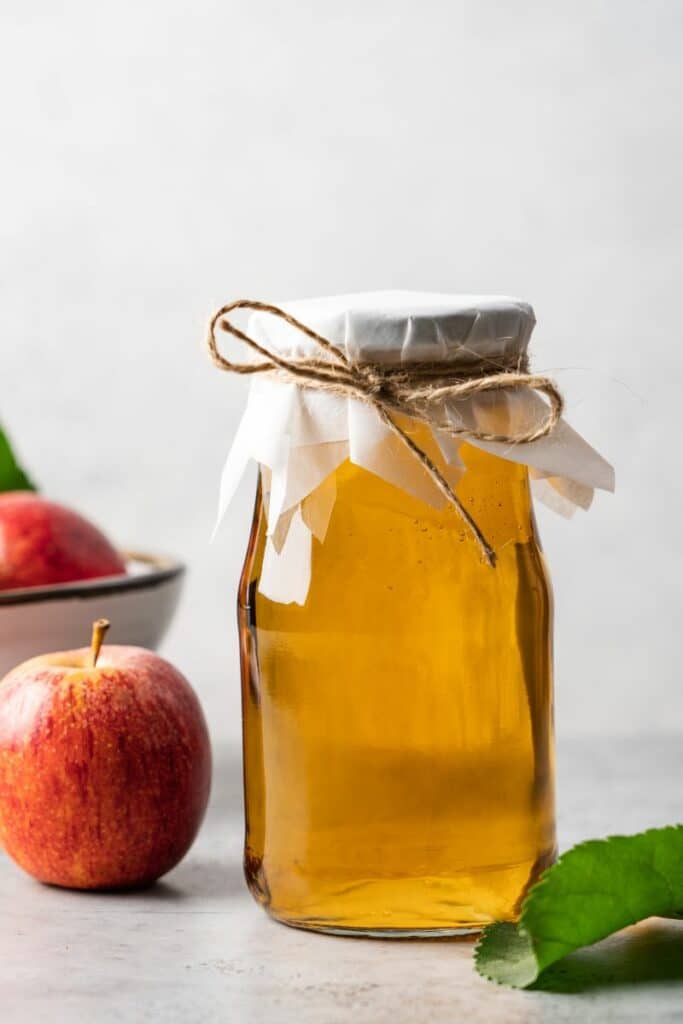
Apple Cider Vinegar (ACV) is a fantastic medium for herbal tinctures, especially if you're looking for a natural and gentle option. Unlike alcohol-based tinctures, ACV is milder on the digestive tract and is a great choice for those who prefer to avoid alcohol. This makes it suitable for people with sensitive stomachs, pregnant women, or anyone who prefers a non-alcoholic option. Plus, ACV is easy to find in any grocery store and is often made with organic ingredients.
ACV is also known for its own anti-inflammatory properties. It contains acetic acid, which can help reduce inflammatory cytokines in the body, easing issues like chronic pain, rheumatoid arthritis, and muscle pain.
When combined with medicinal herbs like turmeric root and ginger root, ACV boosts their active compounds, helping the body absorb them better. This means the health benefits of the herbs, such as reducing inflammation and supporting the immune system, become even more powerful when infused in ACV.
Another benefit of using ACV in your tincture is that it helps balance the body's pH and supports the liver in detoxification. Since inflammation often ties to toxins in the body, this extra liver support makes ACV an ideal choice for an anti-inflammatory tincture.
Key Herbs in this Tincture for Inflammation
Turmeric Root
Turmeric root, also known as Curcuma longa, is a powerhouse herb famous for its anti-inflammatory benefits. Its active ingredient, curcumin, has been shown to reduce inflammation by blocking certain molecules in the body that cause much inflammation.
This makes turmeric incredibly useful for relieving arthritis pain, muscle soreness, and other chronic pain conditions. In rheumatoid arthritis and similar conditions, turmeric is a staple in herbal medicine because of its ability to reduce pain and improve immune response.
Black Pepper
Adding black pepper to your turmeric tincture is important because it contains piperine, an active compound that helps your body absorb curcumin better. Without piperine, curcumin doesn’t absorb well into the bloodstream.
By boosting absorption, black pepper makes your turmeric tincture more effective in reducing inflammation. Besides helping curcumin, black pepper itself has anti-inflammatory effects and can reduce pain and inflammation in the body.
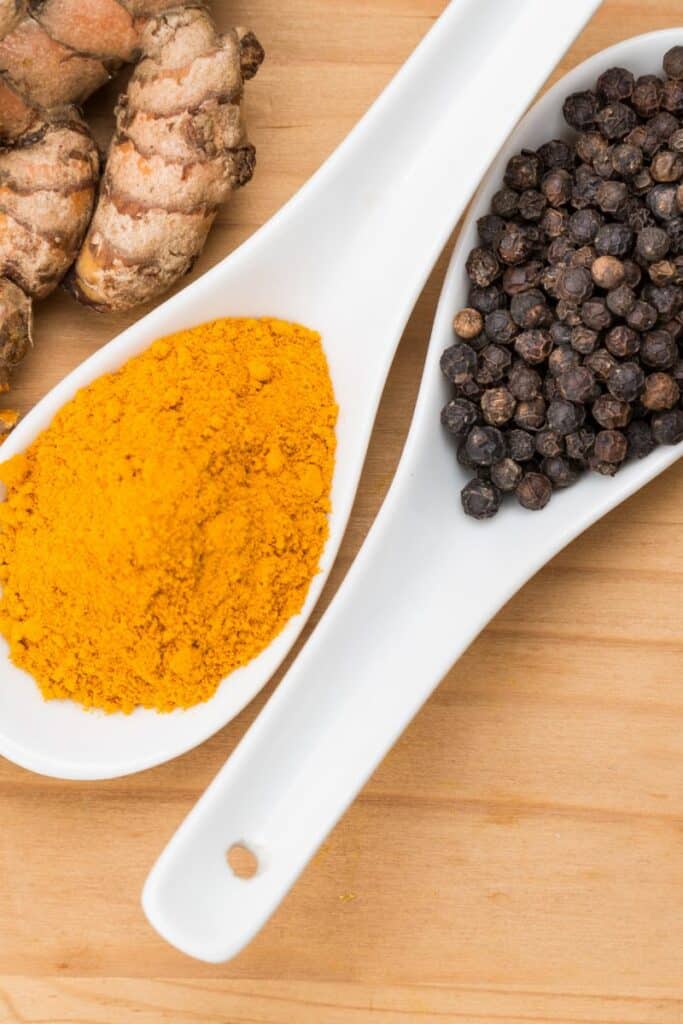
Optional Add-On Herbs
- Ginger Root:
Ginger root, also known as Zingiber officinale, is a powerful anti-inflammatory herb that also supports digestion. Its active compounds can help reduce inflammation in the body, making it a great addition to your anti-inflammatory tincture. Ginger has been shown to ease muscle pain and arthritis pain, while also improving immune function. - White Willow Bark:
Often called "nature’s aspirin," white willow bark is known for its ability to relieve pain and reduce inflammation. It contains salicin, which works similarly to aspirin, providing relief for chronic pain and inflammation. It’s a good option for those suffering from conditions like rheumatoid arthritis and muscle pain. - Licorice Root:
Licorice root is soothing for the digestive tract and has anti-inflammatory properties. It’s helpful for calming the body’s response to inflammation while also supporting the immune system. Licorice root is especially useful for those who may experience digestive issues related to inflammation. However, it should be used carefully by people with high blood pressure, as it can sometimes raise blood pressure levels.
These medicinal herbs work together to create a powerful and effective anti-inflammatory tincture that helps reduce pain, support the immune system, and improve overall health.
Simple DIY Herbal Tincture Recipe for Inflammation
Ingredients
- Turmeric root (fresh or dried) – 1/4 cup, chopped or ground
- Black pepper – 1 teaspoon, peppercorns or freshly ground
- Apple Cider Vinegar (ACV) – Enough to cover the herbs (about 1-2 cups) make sure it's unfiltered, raw, with the mother.
- Optional add-ons:
- Ginger root – 1-2 tablespoons, chopped
- White willow bark – 1 tablespoon, dried
- Licorice root – 1 tablespoon, dried
Step-by-Step Instructions
- Prepare the Herbs:
- If using fresh turmeric root or ginger root, wash and chop them into small pieces. For dried herbs, measure the required amounts.
- Crush or grind the black pepper to help release the active compounds (piperine).
- Combine the Ingredients:
- Place the prepared turmeric root, black pepper, and any optional herbs (like ginger, white willow bark, or licorice root) into a clean, dry glass jar. Make sure you leave some space at the top for the herbs to expand.
- Pour enough apple cider vinegar (ACV) over the herbs to completely cover them. ACV should fill the jar, covering the herbs by at least an inch.
- Seal and Store for Infusion:
- Seal the jar tightly with a non-metallic lid (ACV can corrode metal). If you don’t have a plastic lid, place parchment paper or wax paper between the jar and the lid to prevent corrosion.
- Shake the jar well and store it in a cool, dark place, like a cupboard. Shake the jar every few days to help the infusion process.
- Infusion Time:
- Let the tincture steep for 4-6 weeks. The longer the herbs infuse, the stronger the tincture will be. Shaking it occasionally ensures the ACV extracts all the beneficial compounds from the herbs.
- Straining and Bottling:
- After 4-6 weeks, strain the tincture using a fine mesh strainer or cheesecloth to remove the herb solids. Squeeze out as much liquid as possible.
- Pour the strained liquid into clean glass bottles or jars and seal tightly. Label your tincture with the date and ingredients for future reference.
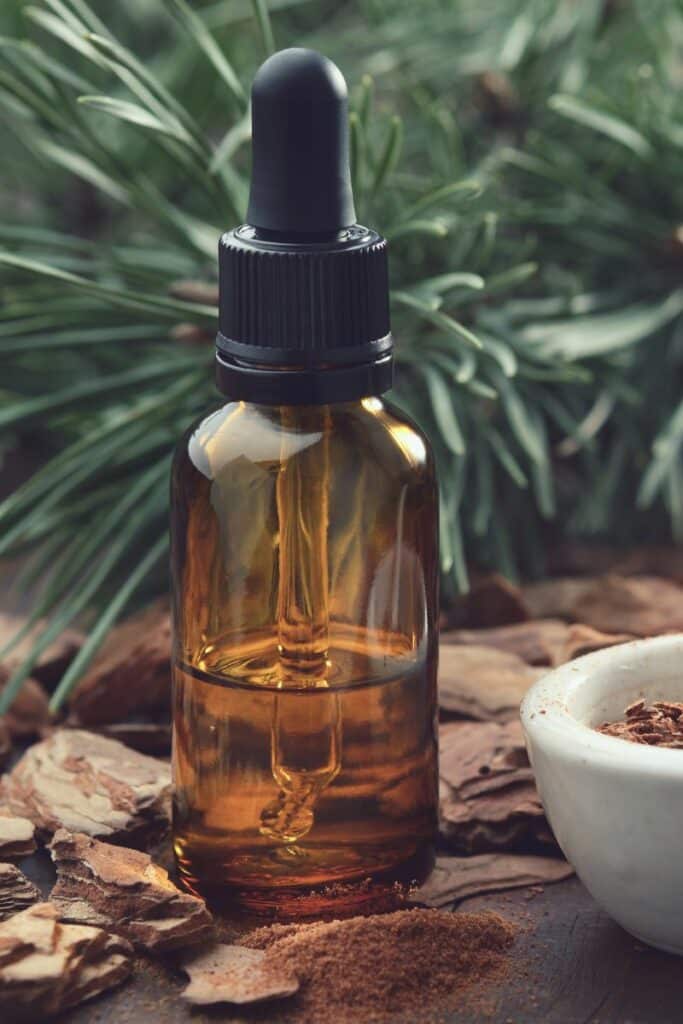
How to Use This Tincture
Recommended Dosage for Managing Inflammation
The general dosage for managing inflammation is 1-2 teaspoons of the herbal tincture at a time. This dosage can be adjusted depending on individual needs, but it's best to start with a small amount to see how your body reacts.
How to Take This Tincture
- With Water or Juice: The easiest way is to dilute 1-2 teaspoons of the tincture in a glass of water or juice. This helps with the strong taste and makes it easier on your digestive system.
- In Tea: You can mix the tincture into your favorite herbal teas. This is especially helpful if you want to mask the strong vinegar flavor or add extra soothing herbs for inflammation.
- Directly: If you don't mind the strong taste of vinegar, you can take the tincture directly from a spoon. Just follow it up with some water to wash it down.
Frequency of Use
For optimal anti-inflammatory benefits, take the tincture 2-3 times a day. It's best to spread out the doses throughout the day to keep the active compounds working in your body consistently. You can take it in the morning, afternoon, and evening to support your immune system and reduce inflammation effectively.
Remember to listen to your body and adjust the dosage or frequency if needed. As always, it's a good idea to consult with a healthcare provider if you have any medical conditions or concerns about taking herbal supplements.
Benefits of This DIY ACV Tincture for Inflammation
Why This Combination of Herbs is Effective for Reducing Inflammation Naturally
This tincture is powerful due to the specific herbs it includes, each bringing unique benefits:
- Turmeric Root: Contains curcumin, which is highly effective in reducing inflammation by targeting inflammatory cytokines.
- Black Pepper: Enhances curcumin absorption, making the turmeric more effective.
- Ginger Root: Offers strong anti-inflammatory properties, helping soothe the body and reduce pain.
- White Willow Bark: Acts like nature’s aspirin, providing natural pain relief.
- Licorice Root: Calms inflammation, particularly in the digestive tract, and supports overall soothing effects.
How This Tincture Can Help With Joint Pain, Muscle Soreness, and General Inflammation
This tincture is beneficial for various types of inflammation-related discomfort:
- Joint Pain: Alleviates pain and stiffness, particularly useful for arthritis and rheumatoid arthritis.
- Muscle Soreness: Reduces muscle pain and helps with recovery after physical activity.
- General Inflammation: Provides overall relief from chronic pain and inflammation throughout the body.
The Added Benefits of ACV for Gut Health and Overall Well-Being
Using apple cider vinegar (ACV) in the tincture offers several additional health benefits:
- Gut Health: Balances pH levels and improves digestion, especially in cases of digestive discomfort related to inflammation.
- Liver Support: Aids in detoxification, helping the liver remove toxins that can cause inflammation.
- Immune System Support: Promotes a healthy immune response, enhancing overall health.
- Improved Insulin Sensitivity: Supports better blood sugar management.
- Weight Management: Assists in maintaining a healthy weight, contributing to overall well-being.
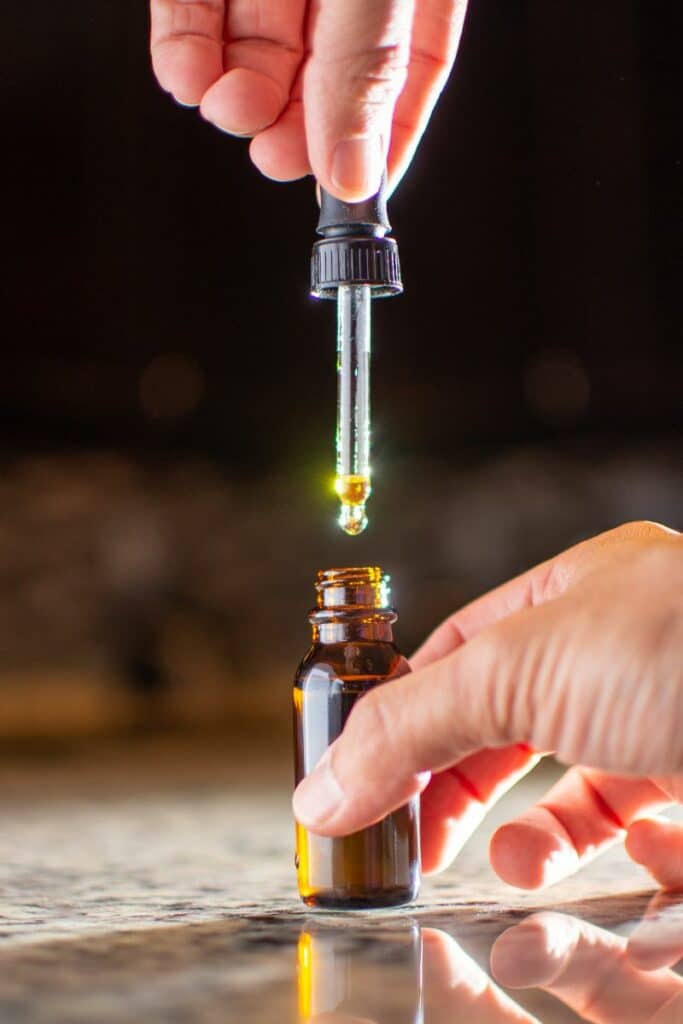
FAQs About Herbal Tinctures for Inflammation
How long does the tincture last?
Herbal tinctures made with apple cider vinegar (ACV) can last for about 1-2 years if stored properly. Keep your tincture in a cool, dark place, such as a cupboard, and make sure the bottle is sealed tightly. Avoid direct sunlight and extreme temperatures to help preserve its potency.
Can I substitute or add other anti-inflammatory herbs?
Yes, you can substitute or add other anti-inflammatory herbs to customize your tincture. Some great alternatives include:
Nettle Leaf: Known for its powerful anti-inflammatory effects, especially for joint pain.
Devil's Claw Root: Effective for reducing pain and inflammation.
Burdock Root: Supports liver health and helps reduce inflammation.Feel free to experiment with different combinations of medicinal herbs to find what works best for your individual needs.
Is it safe for everyone?
While herbal tinctures are generally safe for most people, they are not suitable for everyone. It’s important to consider potential side effects and interactions with other medications. For example, licorice root can raise blood pressure, and white willow bark may not be suitable for people who are allergic to aspirin. Pregnant women, people with specific medical conditions, or those taking medications should always consult a healthcare provider before using any herbal products.
Conclusion
Making your own DIY herbal tincture for inflammation is a simple and natural way to reduce pain, soothe sore muscles, and support your immune system. Using powerful medicinal herbs like turmeric, ginger, and black pepper combined with apple cider vinegar creates an effective remedy that can be customized to your needs. Not only do you benefit from the anti-inflammatory properties of the herbs, but you also support overall gut health and well-being with the added benefits of ACV.
By creating your own tincture, you gain control over the quality of the ingredients and avoid the negative side effects of synthetic drugs.
